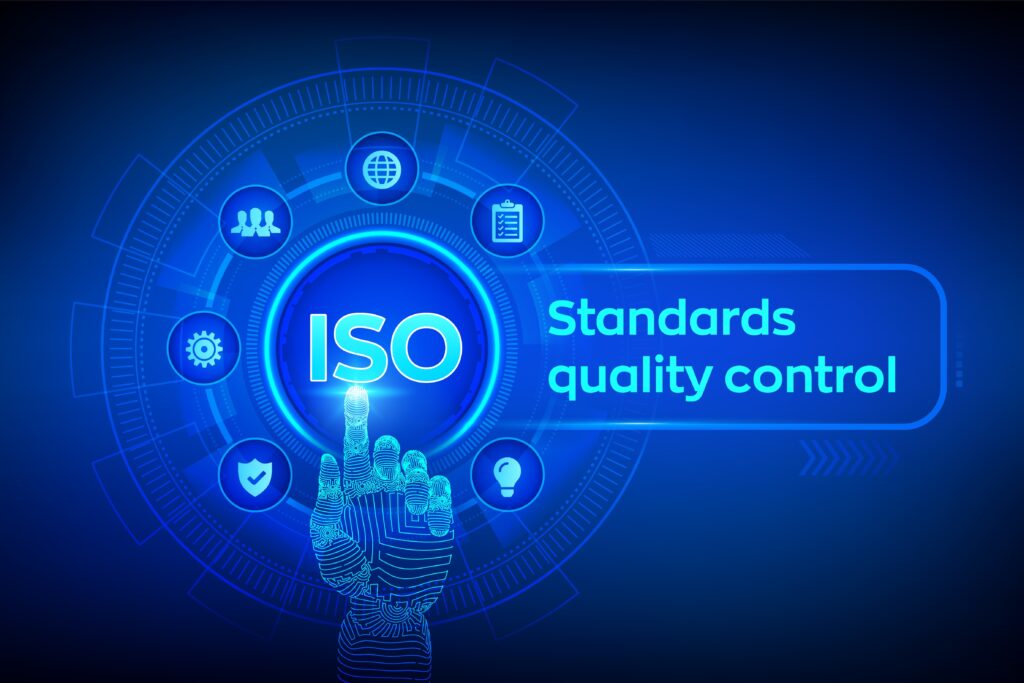Founded in 1947, the International Organization of Standards (ISO) has compiled over 24,000 standards for goods and services in various industries such as healthcare, manufacturing, IT, engineering, agriculture and many more.
Adopted and used by 167 countries internationally, ISO standards help maintain the quality and integrity of goods and services for consumers and investors. ISO standards influence world trade policies by ensuring that the goods and services produced in each country are held to the same quality, reliability and safety standards.
In addition to maintaining a catalog that includes standards for everything from nuts and bolts to shoe sizes, quality assurance to relationship management, the ISO also publishes technical specifications and reports, guides and other information it makes public for consumers.
The Many Advantages of ISO Standards
The advantages of maintaining universal standards for industries worldwide include making it easier for goods and services to reach customers.
Thanks to the internet, customers can order goods and services from companies in various countries. With standard sizing, manufacturing quality, customer service and shipping standards, customers feel more comfortable using the internet to make their purchases.
Creating a worldwide marketplace encourages healthy competition, which leads to increased revenue, innovation and improved quality.
ISO standards also make sharing scientific discoveries, manufacturing and technological advances and medical information easier. Having a universal language when discussing weights, measurements, quantities, metal types and other information helps foster international collaboration – everyone involved has a basic understanding of the information shared, regardless of which languages they speak.
Lastly, ISO standards make it easier for businesses to produce parts and components that complement machinery, electronics, medical devices made by companies. By producing interchangeable parts and components, companies can manufacture all kinds of equipment faster while maintaining quality and reliability.
Benefits of ISO Certification for Businesses
Maintaining universal standards by all participating countries remains the goal of the ISO. To accomplish this, the ISO provides certification to businesses that pledge to maintain these standards when producing their goods and services.
Businesses can apply for certification in different standards as long as those standards pertain to specific goods, services, industries and management services that these businesses provide.
Common ISO standards that pertain to most businesses include IS0 9000 – Quality Management, ISO 14000 – Environmental Management, ISO 45001 – Occupational Health and Safety and ISO/IEC 27000 – Information Security Management Systems.
Obtaining ISO certifications for these and other standards helps businesses grow and succeed by promoting innovation, improving product and service quality and employee performance, reducing risk, increasing reliability and hopefully increasing revenue.
It’s these benefits that prompt many businesses to seek out ISO certification.
How to Become ISO Certified
To become ISO Certified, businesses must complete a lengthy application process that may include employee training, internal auditing and adopting local, state and federal laws that oversee environmental, privacy, health and safety and other issues meant to protect the public.
The time it takes to become ISO certified varies based on what a business needs to do to comply with set standards. Businesses can navigate the certification process on their own or hire a consulting firm with experience guiding businesses toward certification.
As technology continues to evolve, along with consumer needs, the ISO will continue adding standards to its ever-growing catalog. As more and more countries join the organization each year, the ISO will continue to publish and update standards for established and growing industries.
ISO certification provides many benefits for businesses, especially for those businesses that want customers to understand the quality and reliability of their goods and services.
When it comes to branding and marketing, featuring an ISO certification number on products or in marketing literature makes a bold statement to customers about what they should expect when purchasing goods and services.


